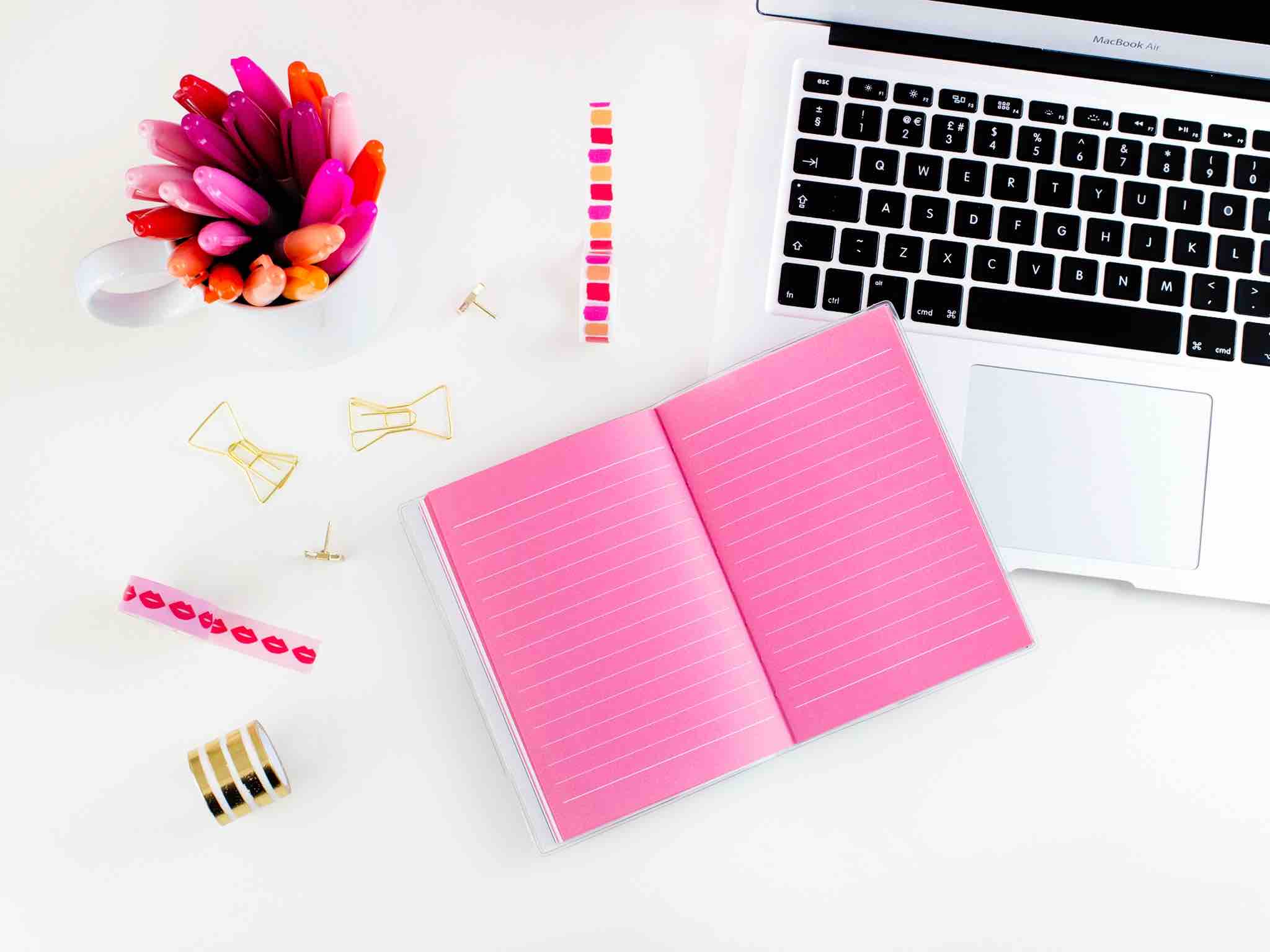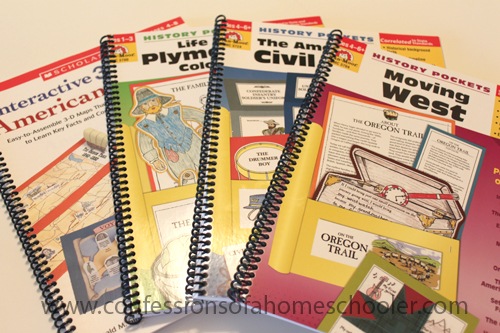Hi everyone! I wanted to share a fun addition to our curriculum this year. As most of you know we’ve been using Abeka for our history curriculum. I love that the materials are a written to each grade level. It is easy for the kids to read, understand, and remember. And I feel like the amount of content covered each day is definitely good for their attention spans.
But what it isn’t…is hands-on. And if you have been reading my blog for any amount of time, you know that I’m a fan of hands-on, interactive learning! Especially for history, which can be kind of dry, I like to add in fun activities.
So to help supplement that we’ve been adding in the Evan-Moor History Pockets and the Scholastic Interactive 3-D American History maps.
And right now Evan-Moor is offering free shipping on any online credit card order over $25, good through Jan. 31st! Use coupon code: SHIP114
The history pockets come in several different themes, so I just picked up a couple that went with the Abeka scope for the year. And then whenever I can we add them in to our lesson for the day.
For each time period, the kids make a booklet from construction paper. The history pockets come with a title image for your book, and then smaller title images for each time frame included in the book.
As we progress through our Abeka lessons we add in one element from that pocket. So really it only adds a few extra minutes to our lesson for each day.
Here is one of our completed pockets for the New World. It has mini-books including the Mayflower Compact, vocabulary words, maps, a booklet with the story of the pilgrims, a Mayflower booklet with information on the ship, some facts about the voyage, and a chest that includes things they brought with them on the journey.
Then we also added in the 3-D interactive maps from the Scholastic book as well. So here added the “Voyage of the Mayflower” interactive map to our history pocket since it went well with our “Voyage to the New World” and all.
This little booklet was one of my favorites. Here’s a close up of the Mayflower booklet. There are 3 pages that tell a little about the ship itself, and it shows a cross view of the ship so you can see the layers of how it was built. (It’s hard to read the writing because Turbo colored the whole thing brown. But trust me it’s there.)
Each pocket comes with a “Words to Know” activity which highlights some key vocabulary for that event in history.
Here is another map I wanted to show you. It is the voyage of Columbus so we did it earlier in the year. I just add these in wherever they fit into our curriculum.
I’ll share more of our history pockets as we go through them. The kids really like them, and they enjoy the more hands-on activities. I think it also helps to reinforce what they’re learning in our curriculum, and gives them a tangible thing to play with and review.
As you can see, it’s not too difficult to make your curriculum a little more fun!
Hope you enjoy, and happy homeschooling :o)
Disclosure: This post was not sponsored in any way. All products were purchased using our own money and I’m sharing them because we love ‘em!










We loved pockets for our Native American studies earlier. It had more crafts and activities than the other history pockets we’ve used.
Do these need to be used with a history curriculum or can they be used on their own?
Erica,
We are using HP this year as well with my 6th grader. I have found that each books break up a segment of American History quite well and it gives me a timeline to follow as we work through the year. I am combining this with living History books and it’s been a great year. My DD is putting all of her work in a History Sketchbook combined with other facts and lessons that we use through out the year.
http://morninghugsandgoodnightkisses.blogspot.com/2014/01/american-history-sketchbook.html
We also love the 3D maps!
Thanks for sharing!
Michele
What is the living history book you’re using? My son is in 6th grade and I’m struggling to find a history book that works for us!
We began using history pockets and the 3-D interactive maps this year as well to incorporate more hands-on, interactive fun into our history curriculum (we are using the same curriculum as the ps). The pockets and maps have been a huge hit with my 9 year old so (4th grade), especially since he is a visual-spatial learner! 🙂 With that being said, I have also become a huge fan of Scholastic’s 3-D Graphic Organizers too. My twin 6 year old daughters love to help him color the pocket pictures and maps too being that he has severe arthritis in his hands and coloring is not easy for him.
I loved using pockets when I was teaching older kids. They even make literature pockets. I imagine, with a little creativity, you could adapt the concept for lots of different subjects.
We love History Pokets – I love that they go through 6th grade and there are still plenty we can do. 🙂
Did you spiral bind them? Mine don’t look like that and it’s hard to make copies. If so, where can I have that done?
Thanks!
Hi Emily,
Yes I have them spiral bound so they’re easier to make copies with :o)
hi! Quick question….does the abeka history follow the same scope and sequence for each grade level (thus allowing you to combine all grade levels with these projects) or do you just have the littles follow along with what your 4/5th graders are learning while doing these? Still trying to figure out how to combine subjects well 😉 TIA, I love your blog!
I am also wondering this!
Hi Erin,
We use the same level for everyone, so I’m not sure if they follow the same units across grade levels. I know in 6th grade they move to world history, so that wouldn’t be able to go with lower grades which do US history. They do post their scope and sequence on their website though so you can see what they cover for each grade. I would check there for more information.
Can you organize these into lap books?
Yes, you could definitely put them into lap books 🙂